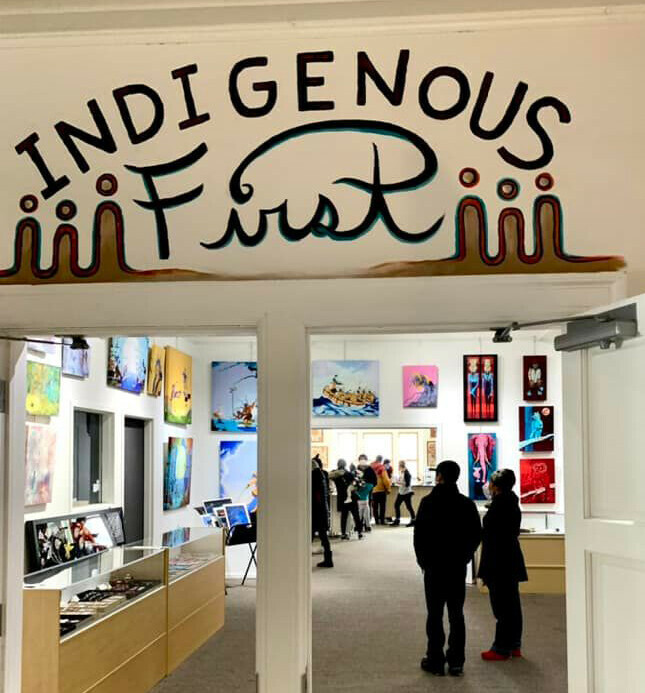AICHO: Seeding indigenous business, art and agriculture

The American Indian Community Housing Organization started in 1992 and is the only cultural center in Duluth.
It currently has 29 units of supportive housing and acts as a hub for indigenous resources and community around the whole Lake Superior region.
Besides providing material support they also cultivate artistic and agricultural efforts through their on-site Indigenous First Art and Gift Shop.
This shop is not the end but the beginning. The organization is growing and will soon transplant their art and food operations to better spots to serve the community.
This includes moving most of the indigenous food and CSA operations to what used to be the Fourth Street Market. This will also be a place for community interaction, including a coffee bar. There should be lots of different kinds of food, including many traditional to the area and the native culture.
“So AICHO owns the 4th Street Market with plans to turn it into the Niiwin Indigenous Foods Market,” said Co-Coordinator Avery Makesroom. “It will be an indigenous food co-op, where we will buy from local farmers and sell indigenous food. We don’t have a date yet but sometime in the near future. We have the building secured and we have a floor plan but it’s not open to the public quite yet.”
They are currently selling food at their headquarters. The new location will have more room and has refrigeration. This place will provide many more options.
Already, AICHO has done much to encourage indigenous food production in the area.
“We have definitely supported a ton of food producers,” Avery said. “A lot of early-stage food producers have now gone to commercial kitchens. We slowly buy from them. Food sovereignty is a big thing, and we have food sovereignty grants for up-and-coming food producers.”
Being a nonprofit organization, they are there to find and help create good food sources but aren’t using this information to just help themselves but also the people who run the sources.
“A big part of our job is people reaching out to our organization to contact new food producers and new artists,” said Avery. “So, we aren’t keeping them to ourselves. We are sharing their information. So, it is really uplifting on both ends.”
Both the art and food programs help people, and their families thrive economically.
Food uplifts people’s bodies while art uplifts people’s minds and spirits. I’m not native or much of an artist but I am an observer of how art impacts people and gives an individual or group a voice. The art produced by a given culture, subculture or other group can act as sort of a collective dream and tell us something about what a group is feeling and what they value. There are many types of artwork and handcrafts in the shop.
“The indigenous first gift shop mission is to uplift,promote and highlight artists, authors and food producers. We only do 20% commission, and we don’t charge wall space,” said Avery. “We do that partially, we have the funding from the McKnight Foundation to offset some of our costs. So it’s not for profit. It is to highlight the artists.”
Avery did also mention how they feature other diverse groups’ artwork along with the Native American art. The art store is also soon moving to a bigger and better location.
“We also have another place for the gift shop in west Duluth next to Duluth Cider. We are probably going to close our downtown location,” said Avery.
Through art and food programs and in many other ways, AICHO facilitates bringing Native Americans together around a shared culture and spreads positivity to all people who check their facilities out.
“We’ve lots of cultural events going on here,” said Avery. “We hire our artists to come in and share their crafts. We have classes you can take and seminars. Go to Aicho.org to find out more.”
